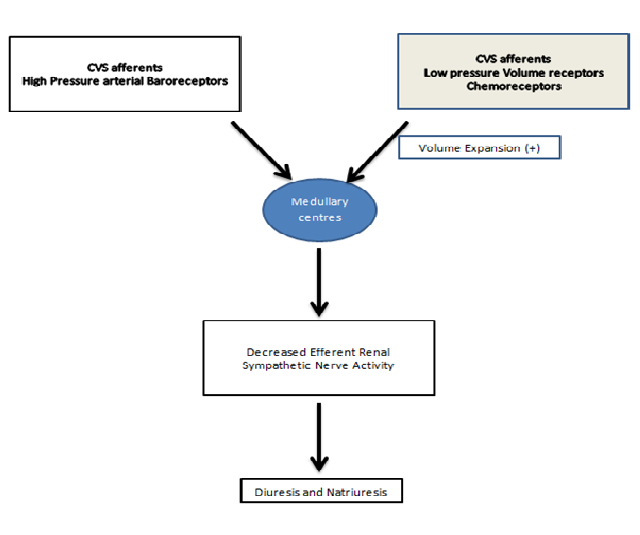Neural Control of Renal Function in Hypertension and Health
Abstract
The body fluid volume and composition regulation are vital for homeostasis. The renal system is destined to perform the feat of ECF volume and composition regulation along with excretory function. The prime intersystem communication between the kidneys, the CNS and cardiovascular system is for ensuring the optimal blood flow and supply of the essential nutrients to each and every cell and tissues of the body. The renal system is under the control of sympathetic division of autonomic nervous system which through its afferent and efferent nerves ensure the body fluid volume regulation. The long-term hormonal mechanisms are also essential part of this regulation as does the short-term neural mechanism. The interaction between renal afferent and efferent sympathetic innervation is deciding the optimum levels of renal function effected through the nervous control The aim of this review article is to appraise, use and apply the information available through published reports to elaborate, delineate, explore on major knowledge building and to address the definite role of renal sympathetic nerves in the function of kidneys in health and disease. With obvious limitations in studying the role of renal nerve activity in hypertensive humans, the underlying mechanism studied in experimental animal model could shed more light on the disease pathogenesis and the evidences obtained so far can be applied in understanding the underlying mechanism in humans as well.






